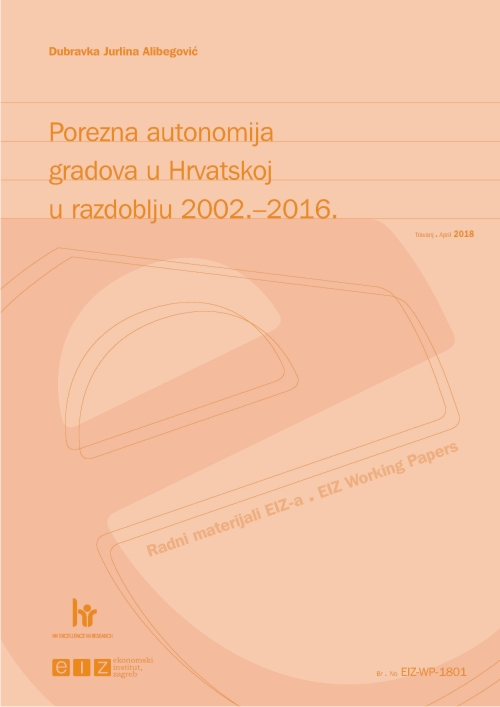New edition of EIZ Working Papers

In the latest edition of EIZ Working Papers the author Dubravka Jurlina Alibegović brings the paper Tax autonomy of Croatian cities in the 2002–2016 period.
In this research, the index of all Croatian cities’ tax autonomy (128) in the 2002–2016 period was calculated. The aim of this research is to show how many Croatian cities control their tax revenues. It is also the goal to determine whether cities have the ability to independently finance local public services to citizens and entrepreneurs. The OECD methodology in the classification of tax revenues was used. The results of the analysis showed that Croatian cities had a relatively low level of tax autonomy, except in the period from 2010 to 2014, when the index of tax autonomy was above 54, while in 2016 it amounted to 41.36. The research results showed that only a small number of cities―without the aid of state government grants―can finance their existing level of public services for residents and entrepreneurs and manage their development. This is an important conclusion in considering the future role of cities in taking over new public functions and increasing the decentralization of public administration and territorial organization of the state.
The publication can be accessed via the Institute's website here.


